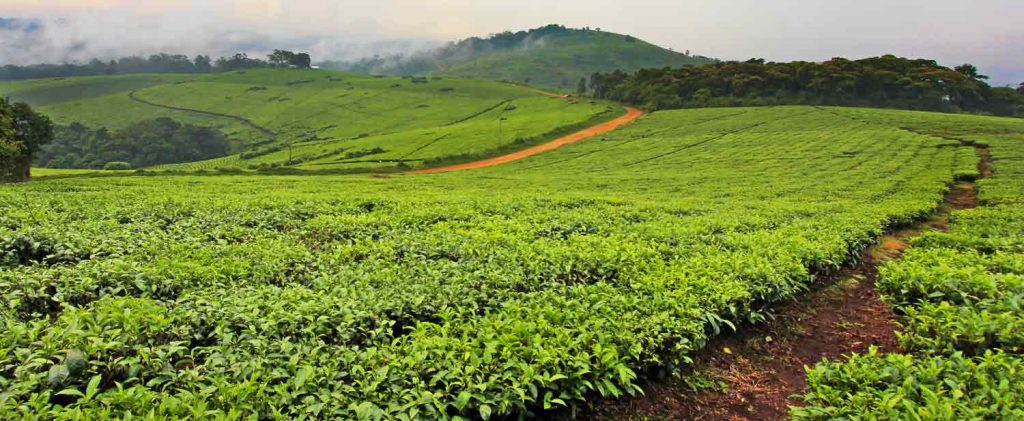Agra outlines efforts to grow Africa’s agriculture
In this exclusive interview with The Nation Editor AUBREY MCHULU, Alliance for a Green Revolution in Africa (Agra) regional head for Southern Africa, Dyborn Chibonga, outlines the role of smallholder farmers in the region’s agriculture transformation, the challenges they face and how to mitigate against such obstacles. Excerpts:
Economies of most African countries are dependent on agriculture. But the impact of climate change in recent years is washing away some gains made. What is Agra doing to assist African countries attain resilience and sustain the gains they have made so far?

Agra’s work in Africa complements that of the governments and its other partners in bringing about an agricultural transformation. Specifically in Malawi, in addition to supporting the government in creating a policy environment that encourages private sector participation in agricultural value chains, Agra has made major investments in systems that give farmers easy access to better inputs, advisory services, more markets, and financial support.
For instance, the Ministry of Agriculture in Malawi began two-year trials for area specific fertiliser blends that are expected to address nutrient needs in a bid to boost production that started during the 2019/20 growing season.
The trials follow the discovery by the ministry and other stakeholders that use of uniform fertilisers nationwide with different ecological zones make farmers pay more for nutrients that may not be needed within their areas; hence, the need to change the course.
The ministry is, therefore, implementing the Strengthening Fertiliser Systems through Promotion of Area Specific Fertiliser Blending in Malawi project alongside The Story Workshop Education Trust with financial and technical support from the Agra. This is aimed at strengthening effective and functional seed, fertiliser, and market systems as well other systems enablers. Advocacy runs across the entire policy circle depending on the issues or reforms being pursued.
Transformation is the current buzzword. Every country is talking about agriculture transformation. However, in all this, the farmer, especially the smallholder farmer is the key player. How is the farmer benefitting from your initiatives at Agra?
Agra works with other partners to transform farming from a solitary struggle to survive to a business that thrives. Africa’s agriculture will have to undergo major changes in the coming decades to meet the future food needs of a growing, increasingly affluent, and urbanised population.
Over the years, Agra has spent more than $23 million in Malawi through grants supporting capacity building, research and development, input production and distribution, agriculture transformation awareness, adoption and production and post-harvest handling.
Smallholders in developing countries play a significant role in this food security equation around the world. Over 80 percent [475 million] of the world’s farms operate on less than two hectares of land. Although these farms occupy only 12 percent of the world’s arable land, they provide an estimated 80 percent of the food produced in Asia and sub-Saharan Africa.
Through past experience, we know that technologies [such as quality seed and fertilisers] are best delivered to farmers if packaged as a suite of services from local businesses, and after a lot of research, discussions, and collaborations. Agra works in Public Private Partnerships and enhances collaboration with the local governments, farmers, and businesses to deliver integrated programming at farmer-level.
The recent Agra Southern African Farmers’ Forum provided a platform for farmers to share their successes and challenges towards attaining inclusive agriculture transformation in the region. Will you please briefly highlight the key challenges and what is in place to overcome them?
The Southern African Farmers’ Forum observed that farmers can contribute towards major regional priorities, such as eradicating poverty and hunger, boosting regional trade and investments, rapid industrialisation and economic diversification, sustainable resource, and environmental management, and creation of jobs, and shared prosperity.
However, farmers face a myriad of challenges that impact upon their productivity and livelihoods, including poor soil fertility resulting from loss of organic matter, nutrient depletion and acidification.
Where does the Malawian smallholder farmer fit in? What programmes do you have in the country to mitigate the challenges the smallholder farmer here faces?
Agra is Malawi’s key agriculture partner working to transform the country’s agricultural systems and increase the productivity and income of smallholder farmers. As agriculture accounts for 42 percent of Malawi’s GDP, Agra reaffirmed its commitment of supporting Malawi to transform its economy going forward by taking cognizance of the success of the farm Affordable Inputs Programme [AIP] which President Lazarus Chakwera launched soon after taking over the government in June 2020.
In addition, recently Agra board chair, Hailemariam Dessalegn, former Prime Minister of Ethiopia, visited Malawi and briefed President Chakwera about his visit to Benga in Nkhotakota where he appreciated the work of a local seed company [Global Seeds] that is being supported by Agra Malawi.
What will be your final word on agriculture transformation in Africa and Southern Africa in particular?
Realising a transformation in southern Africa’s agriculture will need collaboration by diverse stakeholders from smallholder farmers to policymakers, food consumers, researchers, and the private sector. These groups must work together and each play their part to build the sustainable farming systems Africa needs.





